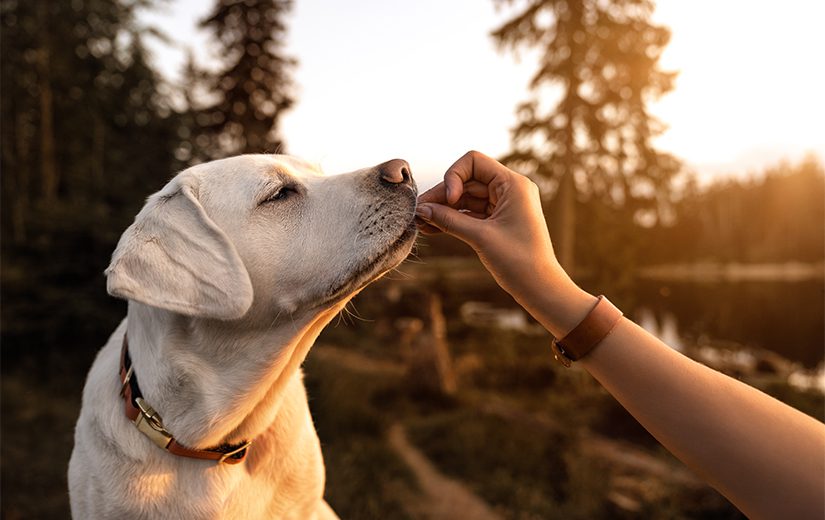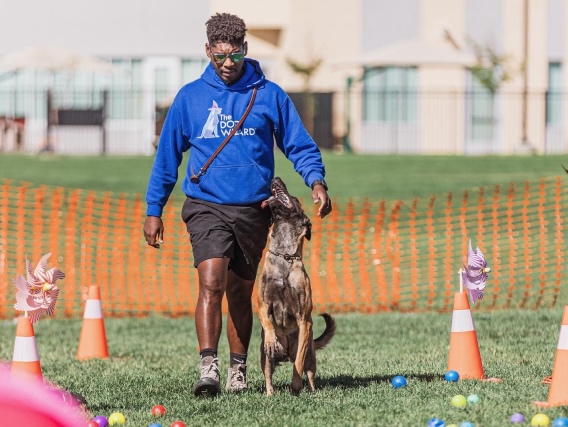Transform Your Canine's Behavior With Proven Training Approaches
Changing your dog's behavior calls for a nuanced understanding of their specific characteristics and requirements, along with the application of tried and tested training methods. By utilizing favorable reinforcement and acknowledging necessary add their body language, you can efficiently address common behavior concerns such as too much barking or jumping. Consistency in your training method not only improves obedience yet likewise cultivates a deeper bond of count on and regard between you and your animal. However, the course to successful improvement may provide unexpected obstacles that warrant further exploration.

Understanding Dog Habits
Comprehending pet behavior is important for efficient training and interaction in between human beings and their canine buddies. Dogs, as social pets, exhibit a series of actions influenced by genetics, setting, and experiences. Acknowledging these habits assists owners tailor their training approaches to meet the certain needs of their canines.
Key aspects of pet habits include body language, vocalizations, and social interactions. Additionally, socialization plays an important role in forming habits; dogs that connect positively with different people and various other animals are normally more well-adjusted and versatile.
In addition, identifying tension signals-- such as panting, avoidance, or pacing actions-- can prevent rise into more major problems. Owners who are attuned to their canine's actions can develop a caring and secure atmosphere, promoting depend on and enhancing the training process. Eventually, a deep understanding of canine habits lays the structure for an unified partnership and efficient training end results, making certain both dogs and their owners flourish together.
Positive Reinforcement Strategies
Favorable support methods are commonly recognized as one of one of the most effective approaches for training pet dogs, promoting a positive discovering setting. This strategy entails satisfying preferred habits with treats, appreciation, or play, thus motivating the pet dog to repeat those habits (Dog training). Unlike punitive techniques, positive support constructs trust and reinforces the bond between the pet and the trainer
To execute favorable reinforcement properly, timing is essential. Benefits must be given immediately adhering to the wanted actions to assist the canine make the connection. Uniformity is also vital; utilizing the same commands and incentives assists the pet dog recognize what is anticipated. In addition, differing the incentives can keep the dog involved. Rotating between treats, toys, and spoken praise can preserve interest and inspiration.
It is very important to keep in mind that favorable support is not regarding bribery; rather, it has to do with strengthening etiquette. Over time, as the pet discovers to associate certain actions with positive outcomes, the regularity of incentives can be progressively minimized, transitioning to verbal appreciation or recurring incentives. This approach not just urges obedience however additionally promotes a confident and happy pet dog, making training a more enjoyable experience for both celebrations entailed.
Addressing Usual Problems
Resolving common problems during pet dog training is important for guaranteeing a effective and harmonious relationship in between the canine and its proprietor. Lots of pet owners encounter behavioral obstacles, such as extreme barking, jumping, and chain drawing. Comprehending the source of these habits is essential for reliable training.
To reduce this, give enough physical workout, psychological stimulation, and opportunities for social interaction with both people and various other canines. Educating the pet dog to rest upon greeting can redirect this behavior positively.
Leash drawing is an additional prevalent issue, frequently arising from a canine's passion to discover. Utilizing appropriate chain handling methods, integrated with training protocols that motivate loose-leash strolling, can considerably boost this actions.
Furthermore, problems like resource protecting or separation anxiousness call for customized strategies. Gradual desensitization and counter-conditioning can be effective in addressing these obstacles. By identifying and proactively taking care of these usual issues, pet dog owners can promote a much more enjoyable training experience and reinforce the bond with their canine friends.
Uniformity in Training
Uniformity is a foundation of effective pet training, as it develops a clear framework for the canine to recognize behaviors and assumptions. When commands, rewards, and signs are find more applied evenly, pet dogs can quicker find more grasp what is needed of them. Irregular training can result in confusion, resulting in unwanted behaviors that annoy both the canine and the trainer.
To attain consistency, it is crucial that all participants of the house stick to the exact same training approaches. For example, making use of the exact same verbal cues and hand signals guarantees that the pet dog receives uniform messages. In addition, the timing of modifications and incentives must be regular; instant support boosts the probability that the canine will certainly link the actions with the result.
Regular technique sessions, coupled with organized timetables for feeding, strolling, and playtime, help canines expect and recognize their atmosphere, making them more responsive to training. Eventually, uniformity cultivates a feeling of security and count on, empowering dogs to discover a lot more efficiently.
Building a Solid Bond
Exactly how can fostering a solid bond between a pet and its proprietor improve the training experience? When a pet dog feels safe in its connection with its proprietor, it is much more likely to display positive habits and be receptive to learning.

In addition, a reputable link can lower anxiousness and behavior problems, as pet dogs are less most likely to act out when they feel recognized and taken care of. Focusing on the growth of a strong bond not just enhances the training experience yet additionally contributes to a better and much more well-adjusted canine. Inevitably, the trip of training changes right into a collective partnership, causing lasting behavioral enhancements.
Final Thought
dog training near me
dog training Rochester NY
Puppy Training"/>
Owners that are attuned to their canine's behavior can create a caring and secure setting, promoting trust and enhancing the training procedure. Ultimately, a deep understanding of canine habits lays the foundation for an unified relationship and effective training outcomes, guaranteeing both canines and their proprietors flourish together.
Addressing common concerns throughout pet dog training is important for making sure a successful and unified partnership between the canine and its owner (Dog training).Consistency is a foundation of efficient canine training, as it establishes a clear structure for the pet to understand assumptions and behaviors.In conclusion, transforming a pet dog's habits with proven training methods requires an understanding of canine behavior, the application of favorable reinforcement strategies, and an emphasis on consistency